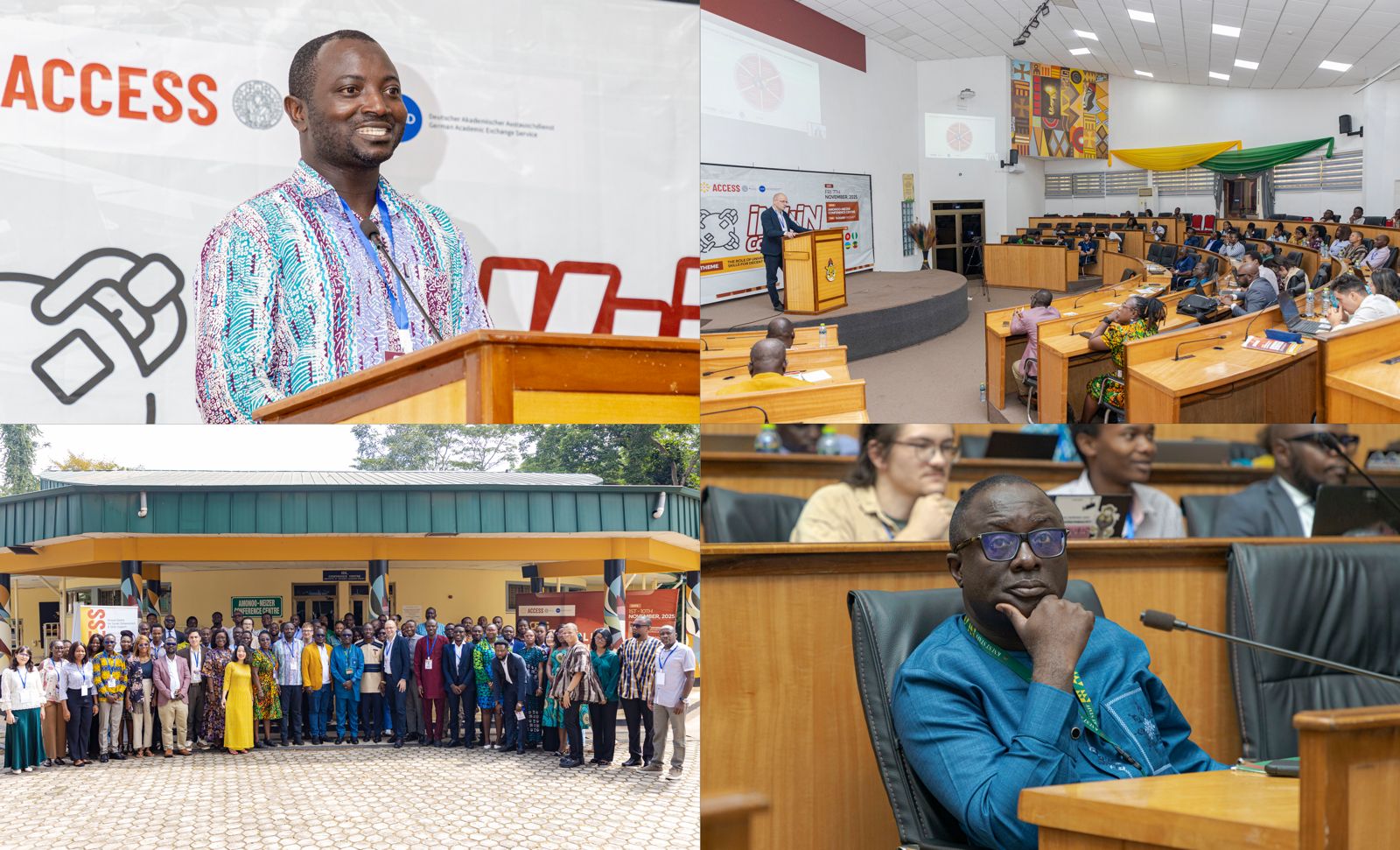The Kwame Nkrumah University of Science and Technology (KNUST), Kumasi, has hosted the 2025 Intelligence for Innovation (IN4IN) Conference under the African Centre for Career Enhancement and Skills Support (ACCESS) Project, in collaboration with Leipzig University and the German Academic Exchange Service (DAAD).
The conference, themed “The Role of University–Business Linkages in Bridging Skills for Decent Work for the Global South,” brought together academics, industry leaders and policymakers to discuss strategies for improving employability and promoting sustainable development through closer ties between universities and industry.
Pro Vice-Chancellor, Professor David Asamoah, stressed the need to align academic training with emerging labour market demands in the context of rapid technological change.
“The demands of digitalisation, and the restructuring of labour markets all require a new approach to skills development; one that values creativity, adaptability, and continuous learning,” he said. “When industry and academia co-create curricula, co-supervise research, and co-develop solutions, learning becomes not just theoretical but transformational.”
He reaffirmed KNUST’s commitment to strengthening partnerships through the Career Services Centre, Innovation and Incubation Hub and ACCESS-Ghana, which support experiential learning and entrepreneurship.
‘‘At KNUST, we continue to reinforce partnerships with industry leaders, professional bodies, and public institutions to ensure that our graduates remain relevant, adaptable, and globally competitive,’’ he said. ‘‘These partnerships have yielded practical outcomes from student internships, industry-led projects and mentorship programmes that empower students and turn their ideas into viable enterprises. We firmly believe that when universities and businesses work hand in hand, we create employers, innovators and problem-solvers.’’
Professor Asamoah commended Professor Robert Clement Abaidoo and the ACCESS–Ghana team, and acknowledged DAAD and ACCESS partners across Africa and Europe for their continuous collaboration.
Professor Dr. Utz Dornberger, ACCESS Director, highlighted the importance of digital tools and international engagement in teaching, research and entrepreneurial training. He cited initiatives such as the “E-Edition Challenge” where students design digital marketing campaigns for real companies abroad.
“We must train our students to use digital tools to foster internationalisation,” he said. “Through cross-border hackathons, internships, dual-degree programmes, and digital simulations, students gain practical experience that prepares them for the global job market.”
He encouraged African universities to adopt action research models and to integrate artificial intelligence into teaching.
“The future classroom will be interactive and digital, one that mirrors real business environments and empowers students to act, innovate, and grow,” he said. “The future of international education lies in collaboration between African and European universities learning from each other to build global competence.”
Chief Executive Officer of Amenfiman Rural Bank Plc, Dr. Alexander Asmah, spoke on the private sector’s role in addressing skills gaps for decent work in the Global South. He emphasized the need to build ecosystems that nurture student entrepreneurship and innovation.
“We must build systems that support young entrepreneurs. Spaces where ideas can grow into real businesses that create jobs and transform communities,” he said.
He noted that Africa’s informal economy offers insights into scalable and sustainable business models.
“Africa’s challenge is not a lack of talent but a lack of structure. We need to bridge the gap between academia and industry by creating partnerships with the private sector that lead to real-world solutions. We must connect skills, mentorship, and opportunity to empower our youth,” he said.
Dr. Asmah proposed a Multi-Stakeholder Skills Development Council to coordinate mentorship and internship programmes, and called for innovative financing to support youth-led enterprises.
“Our goal is simple: to create decent work, not just more work, but jobs that give dignity, purpose, and growth to our people,” he added.


















